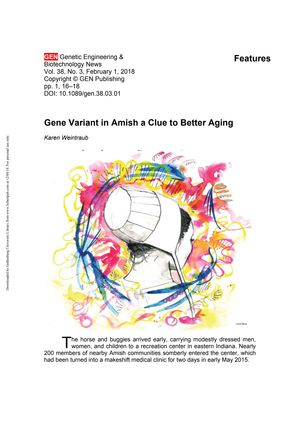Gene Variant in Amish a Clue to Better Aging
January 2018
in “
Genetic engineering & biotechnology news
”

TLDR A genetic mutation linked to longer life and less disease was found in the Amish, and a drug is being developed to replicate these benefits.
In a study involving the Amish community in Indiana, researchers discovered a genetic mutation in the SERPINE1 gene that results in lower levels of the protein PAI-1. This mutation was linked to a longer average lifespan of 10 years and reduced rates of diabetes and heart disease in individuals with one mutated copy of the gene. Dr. Douglas Vaughan's team at Northwestern University is developing a drug, TM5614, which aims to mimic this genetic advantage by partially inhibiting PAI-1. The drug has been tested in 160 healthy people in Japan and is being explored for various therapeutic applications, including anti-aging and the treatment of male-pattern baldness. However, the small sample size of individuals with the mutation and the complexity of aging processes call for caution in interpreting these results. Dr. Vaughan is optimistic about the potential of TM5614 and other future therapies to improve the quality of life by reducing age-related diseases, although they may not significantly extend lifespan.



